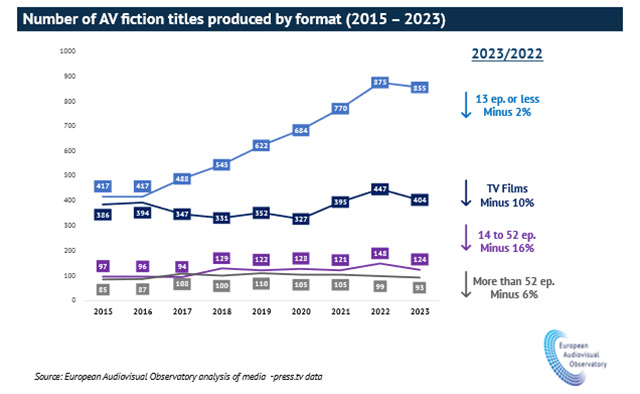Jobs
Chinese Investments, Jobs Help Its Appeal In Europe: Forbes Serbia

Xi Jinping, China’s president, left, during a joint news conference with Aleksandar Vucic, Serbia’s president, in Belgrade, Serbia, on Wednesday, May 8, 2024. Jinping lauded his nation’s ties with Eastern Europe as a boon for the world’s No. 2 economy as he arrived in Belgrade on a trip designed to promote China’s potential as a trade partner. Photographer: Oliver Bunic/Bloomberg
© 2024 Bloomberg Finance LP
Chinese President Xi Jinping’s trip to Europe this week is viewed by skeptics as an effort to cultivate support in the region that has historically been close to the United States. Yet on the ground in Serbia, one of the three countries Xi is visiting, the focus is more on potential economic benefits from ties with China, such as infrastructure and business investment, areas that are welcomed by local politicians and citizens alike, Forbes Serbia Editor Ivan Radak said in an interview.
“It’s easier” for Serb leaders to announce new infrastructures projects with China that get built in a relatively short period of time than engage in drawn-out discussions with bureaucratic European institutions, Radak said by phone from Belgrade.
“From the point of view of ordinary people, it’s better to develop something with Chinese. For them, of course, it’s better to have a highway and not to have it, and so they welcome this,” he said. China investment, which has been undertaken by both state-owned and private sector companies, is also welcomed for boosting manufacturing and creating jobs, Radak said.
China, the world’s second-largest nation with a population of 1.4 billion, has searched the world for growth and influence following its explosive growth in recent decades, and capital inflows into landlocked Serbia have turned the Asia economic powerhouse into one of the country’s largest foreign investors.
Forbes Serbia Editor Ivan Radak.
Ivan Radak
The contrasting heft of China and Serbia is striking: Serbia’s population of nearly seven million is less than a third of the city of Shanghai alone; Serbia’s per capital income is less than half of Shanghai’s. Both have notably sought to keep up ties to Russia during the latter’s invasion of the Ukraine.
Xi visited the country on Wednesday as part of a European trip that is taking him to France and Hungary. The Chinese leader met with Serbian President Aleksander Vucic, who said, “We are writing history today.” The two countries signed 29 agreements this week in Belgrade, media reported. Xi also used the visit to call attention to the 25th anniversary of the U.S. bombing of China’s embassy in the Balkan city in 1999. The U.S. has said it was a mistake and apologized.
Over the subsequent quarter century, once economically lagging China’s investment in Serbia has “reached the level of the combined investment of all 27 European Union member states, solidifying the multifaceted nature” of the Serb-China relationship, according to a report by CHOICE, a China research group run by Prague-based think tank Association for International Affairs.
Prominent Chinese investors include HBIS Group, which took over a struggling steel operation once owned by U.S. Steel and today employs 5,000, and units of Zijin Mining, one of China’s largest mining companies. Zijin Mining agreed to invest $1.26 billion in a copper mining complex in Bor in 2018, in exchange for a 63% stake, according to Reuters. It later opened a Cukaru Peki copper and gold mine in 2021, the news agency reported. Minth, a Chinese auto parts maker controlled by Chinese billionaire Chin Jong Hwa, has invested more than $100 million in Serbia. The Serbian welcome for Chinese infrastructure projects contrasts with criticism elsewhere that that Chinese construction under its “One Belt, One Road” program unfairly burdens recipients with debt.
A worker handles raw copper ore samples at the ZijIn Serbia Copper plant in Serbia April 18, 2024. Zijing Group is one of China’s largest investors in the country. Photographer: Oliver Bunic/Bloomberg
© 2024 Bloomberg Finance LP
China-Serb trade is poised to grow further with following a China-Serbia Free Trade Agreement set to take effect on July 1. Trade between China and Serbia is still in China’s favor, but Serbia’s exports currently account for about 20% compared with an earlier low only 3%, noted Radak, a former reporter at daily newspapers Danas and Blic who has more than two decades of experience in economic journalism and communications. He also worked for the non-governmental organization NALED, which focuses on improving Serbia’s business environment.
Opinion varies in Serbia whether the agreement is a good idea, Radak said. “Some say Chinese companies will benefit more than Serbian companies because we are too small when it comes to production volumes and too far from China” to seize opportunities in China, he said, adding that Serb exports to China are largely commodities and goods from Chinese-owned factories. “A lack of information about China’s market” also holds Serbian businesses back, Radak believes.
Forbes Serbia is one of more than 40 overseas editions of Forbes. It was launched under a licensing agreement between Forbes Media and United Media in 2023.
See related posts:
Apple Supplier Repeats At No. 1 On List Of China’s Top Businesswomen
“Factory Girls” Author’s New Book Contrasts Women’s Life Choices In China, Egypt
New Pew Survey Underscores Negative U.S. Views Of China Amid Strains
The 10 Richest Chinese Billionaires
@rflannerychina










.jpeg?tr=w-1200%2Cfo-auto)